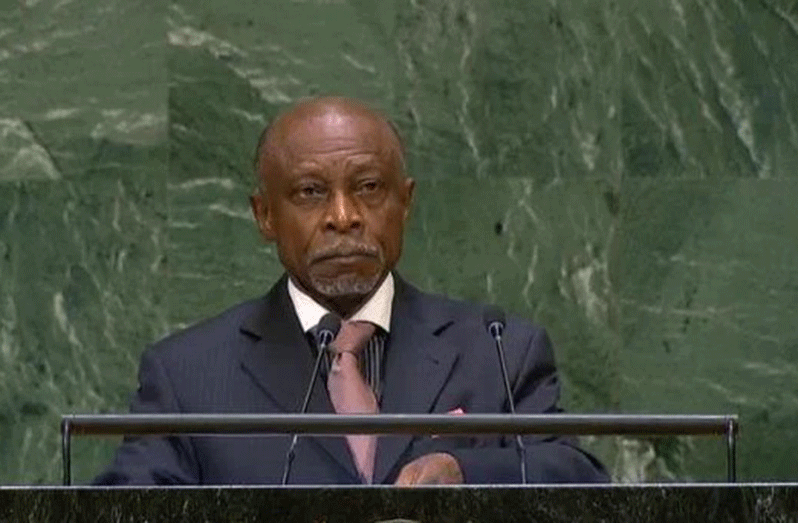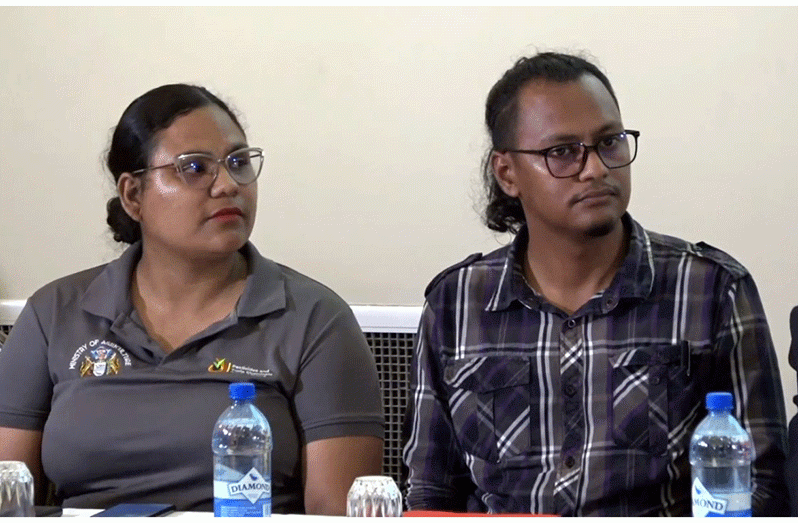local youth representatives say
IN relation to the Guyana-Venezuela border controversy, Malika Russell, Vice President of the University of Guyana’s Student Society (UGSS), has stressed the need for increased involvement, particularly among the younger population.
Russell, while speaking at a recent event, stated that too many youths are not properly informed about the controversy.
“Today the issue at hand is one that threatens the happiness and prosperity of not just the older people, but our current population and of that to come.”
For decades, Venezuela has made unjust claims to two-thirds of Guyana’s territory despite the 1899 Arbitral Award, which established a “full, perfect and final” settlement of the boundary between Guyana and Venezuela.
This territory is known as the Essequibo region.
“As a patriotic daughter of the soil, those words always resonate with me that this is my land, I need to do something to be better or to better the lives and livelihoods of those around me it affects us all …” she said, after reciting several lines of Guyana’s national pledge.
Having interacted with residents in the Essequibo region, Russell shared that many are concerned.
“ As a young person I am very concerned because when you think about what they may be able to do, it affects our lives…there are lives that are going to be affected, if they do try to come by force and I think there is a possibility; however, I also believe that the future belongs to those who prepare for it.”
Youths, she said, must take the responsibility of acknowledging the matter.

Sharing similar sentiments, Gilbert George, a student leader, and international relations student at the university, said he believes there is a large section of the country’s population, both young and old, that doesn’t quite grasp the magnitude of the border controversy and the effects it has on Guyana’s future.
“Young people especially don’t really know how big this is and how much danger this pose [sic] to Guyana and to the development of our country, because I would [say] 90 per cent of our exclusive economic zone is out on the Essequibo forefront.”
He urged youths to become acquainted with the issue.
“Youths need to understand the role we play, we can’t just sit back and say leave it to the older folks or the more wiser folks …we need to get in line with those folks, get the history and know how to plan ourselves going forward; know what impact we can have, how we can contribute to finding a solution to the issue.”
REFERENDUM
In its most recent attempt to thwart the rule of law, the Nicolás Maduro government plans to put forward a referendum on Guyana’s Essequibo.
However, the Guyana Government has sought the intervention of the International Court of Justice (ICJ). A hearing into this matter is set for next week, while an impending case on the border controversy itself is still ongoing at the court.
Speaking on the upcoming case, Guyana’s Adviser on Borders and Agent in the Venezuelan Border Case at the International Court of Justice (ICJ), Carl Greenidge, on Monday explained, that the Bolivarian state’s most recent attempt to assert claims over Guyana’s territory is to have its electorate pronounce on matters of treaties, the work of the courts and the well-being of Guyanese.
The upcoming hearing is to ensure this does not happen.
“The court is being asked not so much to stop them having a referendum, but to ensure they know, and to ensure that the referendum doesn’t have provisions which give the Venezuelan public the mistaken belief that they have the right to decide on other citizens’ fate, citizens outside of the borders of Venezuela, in defiance of world opinion, in defiance of world practice, and in defiance of the obligations that Venezuela as a signatory to an agreement that still exists,” Greenidge explained.
The referendum, he said, is problematic and disregards international law: “The referendum, as is usual with these things, is part of a scenario. In other words, maybe if it was the referendum alone it would be bad enough. But if you look at what has been happening over the past few months, you will find the referendum is one of many things that we are concerned about. ”



.jpg)










